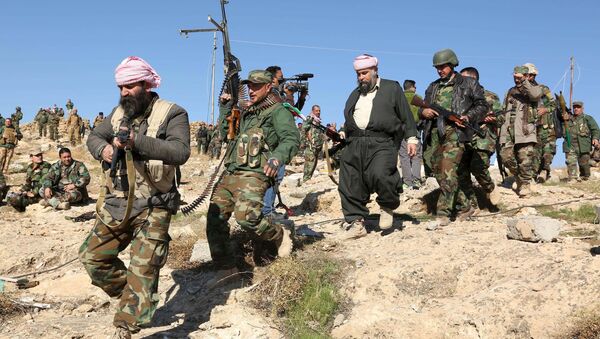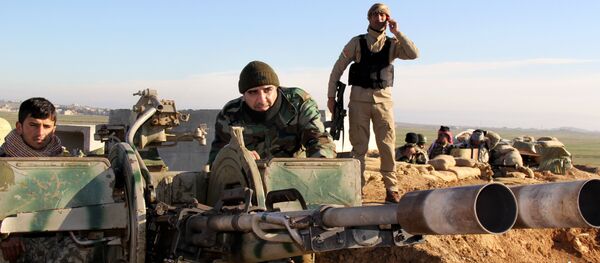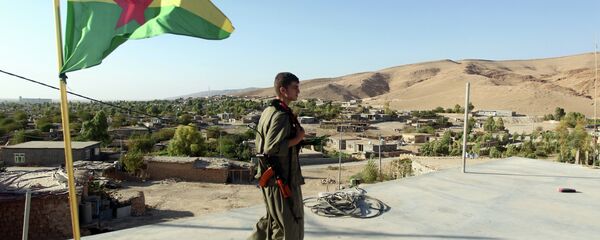Some regional players in the Middle East conflict are worried about the influence of the Kurdish militia which has emerged as one of the most successful fighting forces in Iraq and Syria, Kurdish affairs expert Wladimir van Wilgenburg told Sputnik.
"I think some concerns are justified, because it's not possible for the Kurds for instance to take areas populated by Sunni Arabs, there should be a bigger Arab component," said van Wilgenburg, adding that though the Kurds have shown their capability in defeating Daesh in several areas, greater Sunni Arab involvement is needed in the operations.
One such recent success was the capture last month of the Iraqi town of Sinjar, said the expert, which "broke the logistical line between Raqqah and Mosul, the two capitals of ISIS (Daesh). Also they are fighting heavily in Hasakah, where they have defeated ISIS several times. Because the Kurds are so close to Raqqah and Mosul, whoever wants to defeat ISIS, they have to work with them."
Van Wilgenburg spoke of the important role of international mediators in bringing about a political solution which will bring lasting stability. In particular, the US could use NATO to positively impact on Turkey's relationship with the Syrian Kurds, and Iran could mediate between Baghdad and Iraqi Kurds.
"Everybody has their own agenda, and that makes it very difficult to find a solution," said Van Wilgenburg, who explained that political agreements with opposition groups in Syria and the inclusion of Sunni Arabs in operations against Daesh are crucial to the defeat of the terrorist group.




